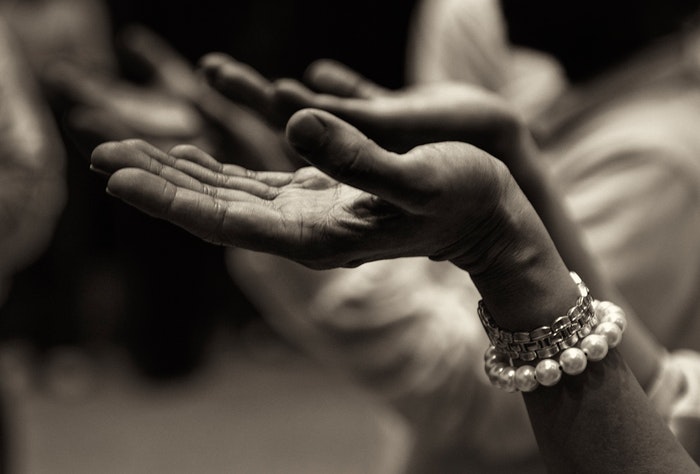Hillsong Church, known for its popular worship music, sounds different in Atlanta. At the new location’s first day of Sunday services, rapper Da’ T.R.U.T.H. kicked off worship in the dimly lit Atlanta Event Center, formerly Club Opera in the heart of downtown.
Donning a sweatshirt, jeans, and a man bun, Da’ T.R.U.T.H., who was also featured in Hillsong Atlanta’s “Welcome Home” launch video, rapped the lyrics to his song “The Faith” in front of the congregation at three opening-day gatherings.
Attendees—few were masked, despite the church advertising mask-wearing and social distancing requirements—stood from black folding chairs and gold-seated booths to cheer for Sam Collier, who’s the first African American to serve as lead pastor of a Hillsong church.
The crowd was diverse, and the service felt like a pep rally. “I guess I need to know if anyone who loves Jesus is in the building?” Collier asked. “Lift him up! Welcome to our grand opening!”
Collier, who came to Hillsong from Andy Stanley’s North Point Ministries, has deep connections in the city. He previously ministered at Ebenezer Baptist Church, the home church of Martin Luther King Jr., and New Birth Missionary Baptist Church, another well-known Black church in the metro Atlanta area.
Hillsong, which formed its own denomination in 2018, has locations in about a dozen US cities and 28 countries, averaging a total global attendance of 150,000 a week, according to its website. The services drew prominent Atlanta figures and celebrities and featured Hillsong Church global senior pastors Brian and Bobbie Houston.
“It’s been a difficult year, but you’re the greatest …
News brought to you by Christianity Today



